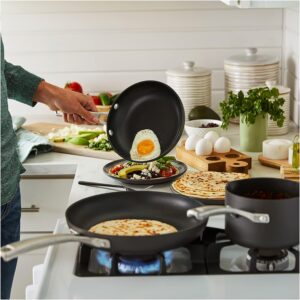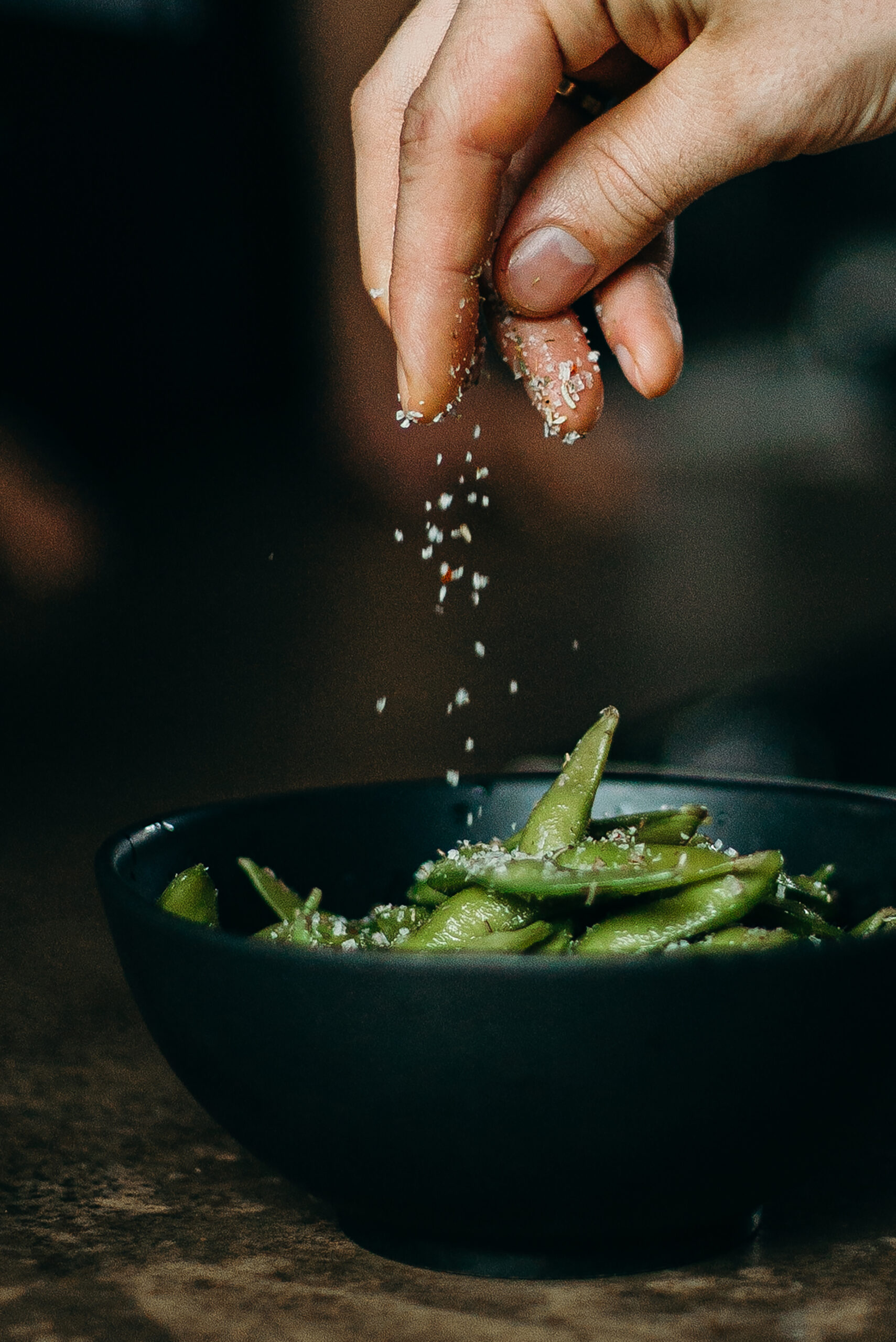If you’re a proud owner of Calphalon cookware or considering purchasing some, it’s important to understand how to properly care for and maintain it to ensure its longevity and performance. From cleaning techniques to compatibility with various cooktops, this article covers all your questions and concerns regarding Calphalon cookware care.
Discover how to keep your pots and pans in pristine condition, whether they are non-stick, stainless steel, cast iron, or hard-anodized. Explore tips on preventing sticking, removing stains, and restoring non-stick properties. Additionally, learn about the differences between Calphalon collections, recommended oven temperatures, and safety considerations. So, let’s dive into the world of Calphalon cookware care and ensure your kitchen arsenal is always ready to create delicious meals with ease.

This image is the property of images.pexels.com.
What is Calphalon cookware?
Calphalon cookware is a popular brand of kitchen cookware that offers a wide range of high-quality pots, pans, and other cooking utensils. The brand is known for its durable construction, innovative features, and stylish designs. Calphalon cookware is designed to make cooking easier and more enjoyable, with options suitable for all types of cooking tasks and preferences.
Is Calphalon cookware safe to use?
Yes, Calphalon cookware is generally considered safe to use. The brand prioritizes safety in the design and manufacturing of its products, ensuring that they are free from harmful substances and adhere to industry standards.
Calphalon cookware is made from materials that are safe for cooking and do not pose any health risks when used properly. However, it is important to follow the manufacturer’s instructions for proper use and care to ensure optimal safety and longevity of the cookware.
How is Calphalon different from other cookware brands?
Calphalon sets itself apart from other cookware brands through its commitment to innovation and quality. The brand continuously works to improve its products and incorporate new technologies to enhance cooking experiences.
Calphalon cookware is known for its exceptional heat distribution and retention, allowing for even and consistent cooking results. The brand also offers a range of cookware lines to cater to different cooking preferences and needs, ensuring that there is something for everyone.
What materials are Calphalon pots and pans made from?
Calphalon pots and pans are made from various materials, depending on the specific line and product. Some of the commonly used materials include stainless steel, hard-anodized aluminum, and cast iron.
These materials are chosen for their durability, heat conductivity, and non-reactivity with food. Each material has its own unique properties and benefits, allowing for versatile cooking options.

This image is the property of images.pexels.com.
Is Calphalon non-stick?
Yes, Calphalon offers non-stick cookware options. Non-stick coatings are designed to prevent food from sticking to the surface of the cookware, making it easier to cook and clean. Calphalon’s non-stick cookware is known for its high-quality coatings that are durable and long-lasting. These coatings are made from safe materials, free from harmful substances such as PFOA, and are designed to provide optimal non-stick performance.
How do I clean Calphalon non-stick cookware?
Cleaning Calphalon non-stick cookware is a straightforward process. It is recommended to wash the cookware by hand using mild dish soap and a soft sponge or dishcloth. Avoid using abrasive cleaners or scrub brushes, as they can damage the non-stick coating. For stubborn stains or residue, you can soak the cookware in warm soapy water before gently scrubbing with a non-abrasive sponge. After washing, thoroughly rinse the cookware and dry it with a soft cloth or towel.

This image is the property of images.pexels.com.
Can I use metal utensils with Calphalon non-stick cookware?
It is generally recommended to avoid using metal utensils with Calphalon non-stick cookware to prevent scratching or damaging the non-stick coating. While Calphalon non-stick coatings are designed to be durable, using metal utensils can cause premature wear and reduce the lifespan of the coating. Instead, opt for non-metal utensils such as silicone, wood, or nylon, which are gentle on the non-stick surface.
Are Calphalon pans oven-safe?
Yes, many Calphalon pans are oven-safe, but it is important to check the specific product’s instructions or packaging for the recommended oven-safe temperature and duration. Most Calphalon pans are safe for use in the oven up to a certain temperature, which may vary depending on the type of cookware and its construction. Using the cookware outside of the recommended temperature range can lead to damage or potential safety hazards.
This image is the property of images.pexels.com.
What is the recommended oven temperature for Calphalon cookware?
The recommended oven temperature for Calphalon cookware generally varies depending on the specific product and materials used. It is important to refer to the individual product’s instructions or packaging for the recommended oven-safe temperature. Typically, Calphalon cookware can safely withstand oven temperatures up to 450°F (232°C) or higher, but it is always best to verify the specific recommendations for each piece of cookware.
Can I use Calphalon cookware on a smooth-top electric range?
Yes, Calphalon cookware is suitable for use on a smooth-top electric range. The smooth and flat surface of the electric range provides excellent heat distribution, making it compatible with most types of cookware, including Calphalon. When using Calphalon cookware on a smooth-top electric range, it is important to follow the manufacturer’s instructions for proper use and care. Avoid dragging or sliding the cookware on the glass surface to prevent scratching or damaging the range.




